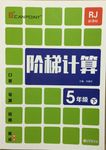阅读理解
There is no shortage of writing advice telling you to keep your writing simple-to use simple language.However, why do so many people continue to ignore that good advice?
A conversation around the theme of simplicity(简明)gets me thinking about this question.Why are people so fond of words that are hard to read?
A study looked into the way word choice changes the judgment we make about someone抯 intelligence.Students were asked to rate the intelligence of writers based on essays that they抎 written, and choose books suitable for graduate study.The results? The simpler the essay, the more likely it was the author would be rated as intelligent, and recommended for going to the graduate school.
The author of the study(Daniel Oppenheimer)concludes:
"The experts are likely right:write clearly and simply if you can, and you抣l be more likely to be thought of as intelligent."
So why is it so hard to put the writing advice into practice? In the same article Oppenheimer mentions that:
86% of students at Stanford admitted using complicated language in their essays to make their work sound more intelligent.Some of the possible reasons include:
●Desire to prove your topic is complicated by using complicated words.
●Fear of being regarded as lacking education.
●Natural desire to copy the language patterns of others.
●Little encouragement to use 'ordinary抴ords.
●Lack of time to 'translate抰he complicated words used around you into everyday words.
●Longer words keep subjects impersonal(客观的)-reducing potential for personal criticism and attack.
●It抯 the way people above you write-so you think it抯 the ladder to success.
What about you? Can you see any hidden benefits of using long words? Have you ever found yourself changing a simple word for a longer one to achieve a particular effect?

 阶梯计算系列答案
阶梯计算系列答案